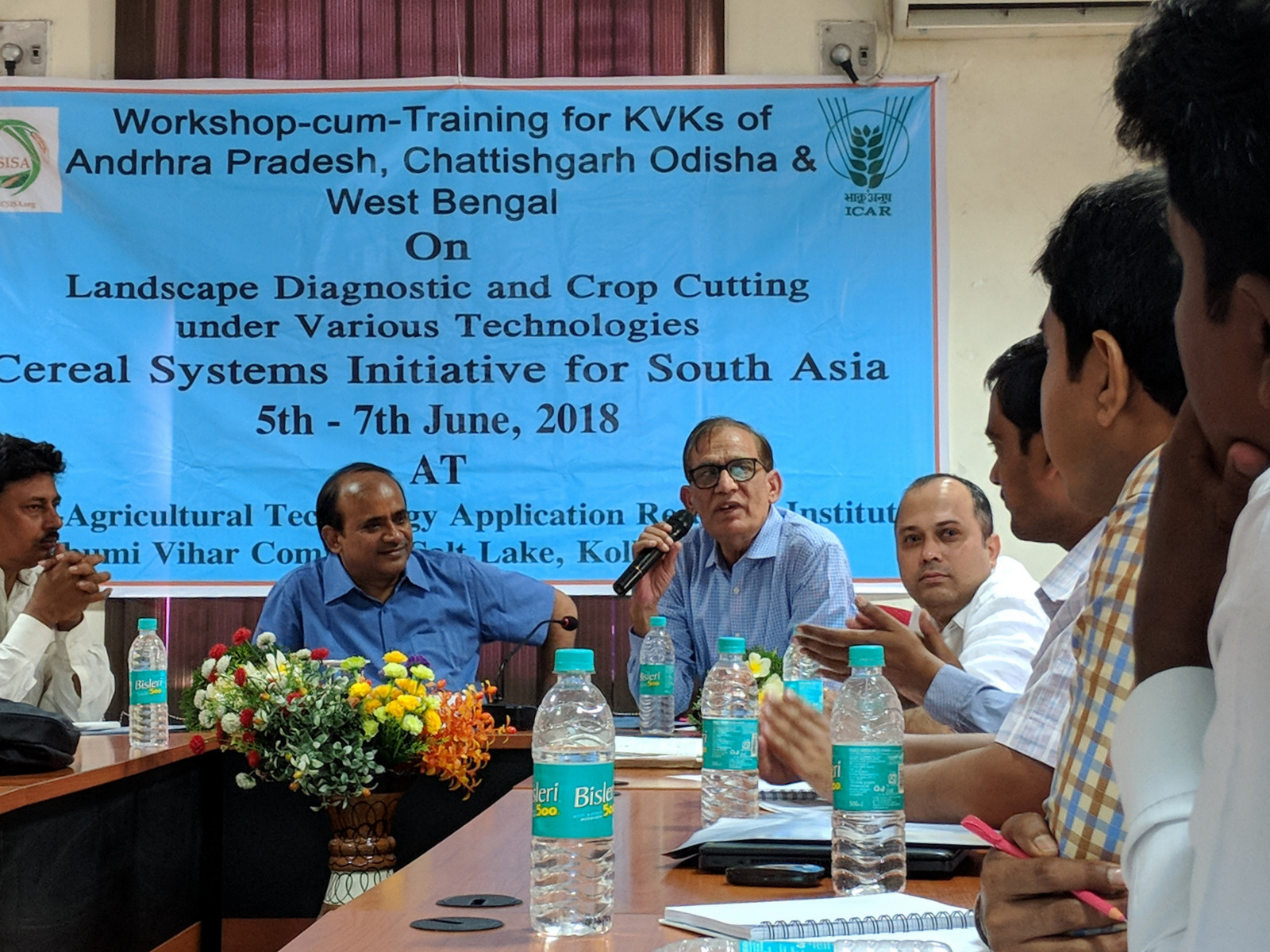Partnering with India’s KVK system to improve data collection and diagnostics
In India, the Krishi Vigyan Kendra (KVK) network was established in 1974 to serve as district-level “farm science centers” tasked with conducting on-farm tests of agricultural technologies, implementing frontline demonstrations, conducting need-based training programs, serving as local knowledge centers and supporting the marketing of locally relevant agricultural technologies. The KVK system, now comprising 680 KVKs, is overseen by the Indian Council of Agricultural Research (ICAR) and administered by a group of 11 agricultural technology application research institutes. The KVK is the largest countrywide network that caters to the needs of researchers from state agricultural universities and ICAR institutes and provides field-level extension for the Department of Agriculture in each state.
Since 2015, CSISA has worked with KVKs in Bihar, eastern Uttar Pradesh and Odisha to test and modify locally relevant technologies and help integrate successful technologies into the government’s official package of practices for each state. In the Eastern Indo-Gangetic Plains, a region marked by low cereal productivity, small farm sizes and resource-poor farmers, CSISA and its KVK partners strive to intensify cereal-based cropping systems by facilitating the adoption of better-bet agronomic management practices such as zero tillage, early wheat sowing, timely establishment of rice, hybrid rice and maize, and crop diversification.
CSISA, national agricultural research and extension system (NARES) institutes, KVKs and the Department of Agriculture are working to increase the availability of scale-appropriate machinery in rural areas so that entrepreneurial farmers can develop service provision businesses. As an example, in each of 25 KVKs, Bihar Agricultural University, Sabour, is facilitating the establishment of 10 service providers who will raise and market rice nurseries to local farmers. To date, CSISA’s programming and partnerships have facilitated the emergence of nearly 4,000 service providers in the project’s working domain.
In 2018, CSISA launched a new capacity-building partnership with 50 KVKs, and trained their staff to conduct a landscape diagnostic survey, a tool that helps KVKs identify which technologies would be most likely to succeed in their geographic domains. KVK teams were taught how to use an Open Data Kit (ODK), an Android-based mobile data collection tool that increases the speed, efficiency and quality of data collection in the field. Once data are in hand, ODK also enables faster data analysis and visualization.
In June, CSISA and its KVK partners launched a landscape diagnostic survey in 50 KVKs. The survey will run through October, ultimately covering 10,500 farmers this year, and is expected to be repeated beginning in January 2019. Survey data collected by the KVKs will help research organizations like the state agricultural universities and ICAR institutes, and state extension agencies like the Department of Agriculture, jointly develop investment strategies and implementation plans that address the needs of multiple stakeholders.
Innovative partnerships such as the ones between CSISA, NARES (including the KVKs) and the private sector, serve as a necessary accelerant for the adoption of scale-appropriate technologies and the intensification of cereal-based cropping systems in India. Rigorous surveys and the sharing of analytical results will serve as important milestones in the overall capacitation and transformation of the KVK system.
Author: Dr. RK Malik and Cynthia Mathys

